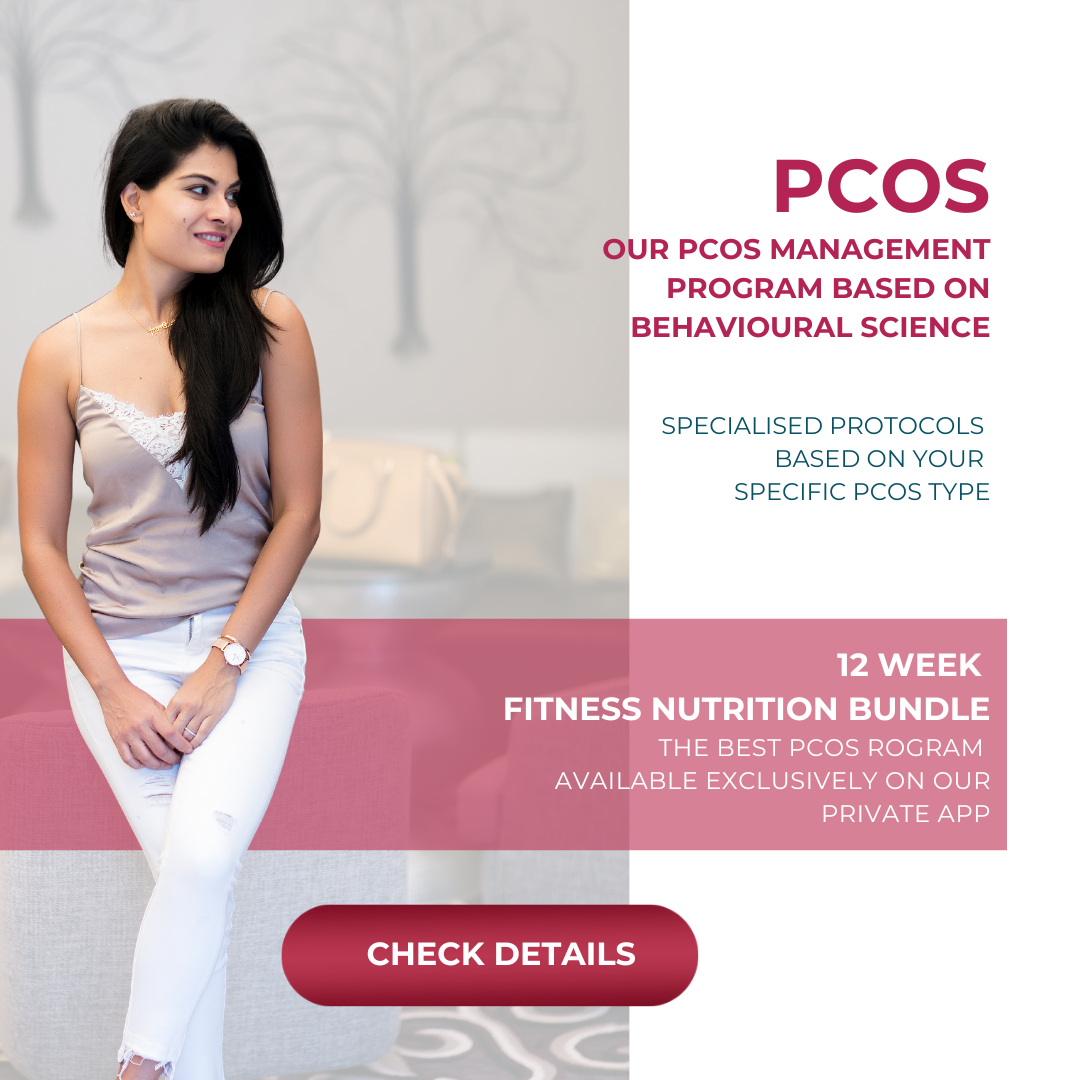Find your PCOS type
What’s Your PCOS Type? Take This Self-Assessment Quiz
If you’re dealing with PCOS (Polycystic Ovarian Syndrome), you already know it can be confusing and frustrating. Not all PCOS is the same. Your symptoms may look different from someone else’s — from irregular periods and acne to hair fall, mood swings or weight gain.
That’s why understanding your PCOS phenotype — your unique type — is critical. This quiz helps you identify that so you can get the right support.
Chat with our nutritionist on WhatsApp
How to Use This Quiz
Rate each symptom based on your experience in the past 3–4 months:
- 0 = Never / Rarely
- 1 = Occasionally
- 4 = Often
- 8 = Frequently or Severe
Section A: Signs of High Androgens
- Excessive facial or body hair (chin, chest, stomach)
- Oily skin or persistent acne despite skincare
- Noticeable hair thinning or hair fall
- High testosterone or DHEA-S levels (if tested)
Total (A): ____ / 32
Section B: Irregular Menstrual Cycles
- Cycles shorter than 21 or longer than 35 days
- Missing periods for 3+ months
- Difficulty conceiving naturally
- Severe PMS, clotting, or heavy bleeding
Total (B): ____ / 32
Section C: PCOM (Polycystic Ovary Morphology)
- Doctor-confirmed polycystic ovaries or AMH > 4 ng/ml
Total (C): ____ / 8
Section D: Metabolic Risk
- Waist circumference over 88 cm
- Sugar cravings, dizziness, or irritability if you skip meals
- Elevated fasting glucose or insulin levels
- High LDL/triglycerides or low HDL cholesterol
- Family history of diabetes or metabolic syndrome
Total (D): ____ / 32
Understanding Your PCOS Phenotype
Compare your scores to the table below:
| Type | High Androgens (≥16) | Irregular Cycles (≥16) | PCOM (8) |
|---|---|---|---|
| Phenotype A | Yes | Yes | Yes |
| Phenotype B | Yes | Yes | No |
| Phenotype C | Yes | No | Yes |
| Phenotype D | No | Yes | Yes |
Metabolic Alert
If your Section D score is 16 or above, you're likely dealing with significant metabolic risks. Even if you're not overweight, insulin resistance or inflammation can block progress. Prioritise lifestyle, movement, and anti-inflammatory nutrition.
Recommendations Based on Your PCOS Type
Phenotype A (Classic)
- Focus: Hormones + Metabolic Health
- Eat low-GI meals with fibre, protein, and healthy fats
- Recommended: myo-inositol, omega-3, magnesium, vitamin D
Phenotype B (HA + OD)
- Focus: Hormonal Regulation
- Avoid high-dairy and sugar foods
- Recommended: zinc, spearmint, B-complex, saw palmetto
Phenotype C (HA + PCOM)
- Focus: Androgen reduction + Gut balance
- Recommended: spearmint, NAC, zinc, anti-inflammatory diet
Phenotype D (OD + PCOM)
- Focus: Ovulatory support + Cycle tracking
- Recommended: inositol, omega-3s, magnesium, vitamin D
Basics You Can Start With
- Eat 3 structured meals with protein + fibre at every meal
- Move 30 mins daily — walk, dance, strength, yoga
- Limit added sugar and processed foods
- Prioritise sleep and stress regulation
Need 1:1 Help with Your PCOS?
We offer a comprehensive, deeply personalised PCOS program designed to treat the root causes — not just manage the symptoms.
Click here to chat with a nutritionist
Explore the Complete PCOS Recovery Program
Disclaimer:
This quiz is a self-assessment tool. It is not a diagnostic test and should not replace professional medical advice. Always consult your doctor for an accurate diagnosis and treatment plan.

